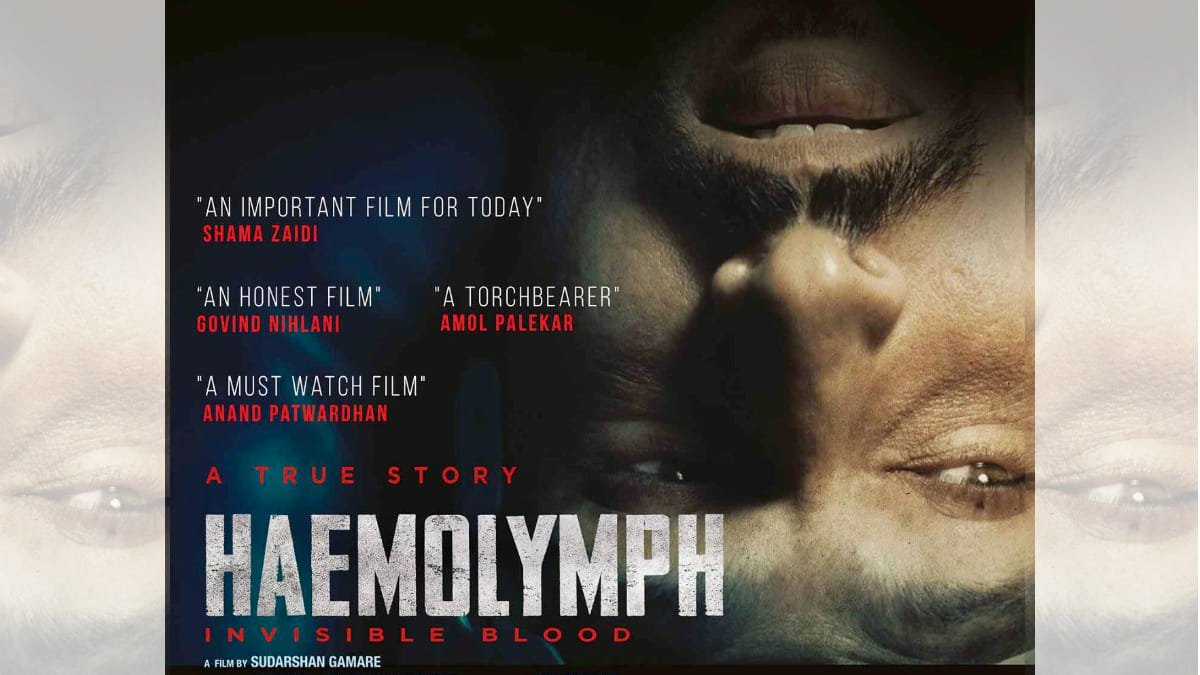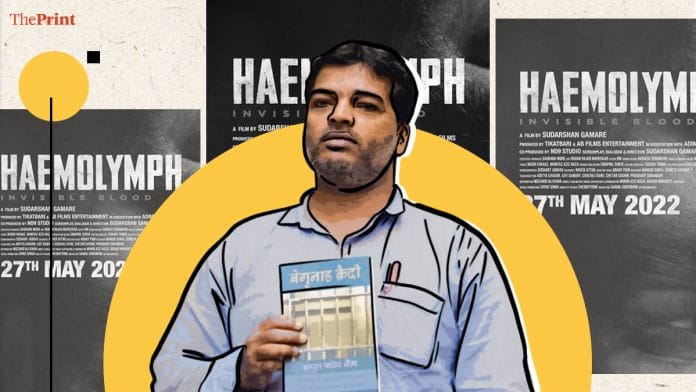New Delhi: A new film, Haemolymph: Invisible Blood, which released on 27 May, traces Abdul Wahid Shaikh’s fight for justice.
Shaikh was one of the 13 people chargesheeted by the Mumbai Anti-Terrorism Squad (ATS) for allegedly planning and carrying out the 7/11 Mumbai train bombings, a series of seven blasts that rocked the city on 11 July 2006, killing over 200 people.
Shaikh was charged with allegedly sheltering the Pakistani accused at his Mumbra home. He was acquitted in 2015.
“I was arrested because they couldn’t find the original culprits,” Shaikh had told ThePrint in an interview last year.
Written and directed by Sudarshan Gamare, Haemolymph begins with Shaikh going about his daily life as a school teacher. The film is a sincere effort on Gamare’s part to recreate the events around the 7/11 blasts and Shaikh’s hardships, without sensationalising them.
The film-maker uses matter-of-fact dialogue and scenes of loss and hopelessness to tell Shaikh’s personal story and, in doing so, question the country’s legal system and processes, whose delays can often upturn the lives of innocent people.

“While I initially did not know the other co-accused, with time, we got to know each other and realised that all of us had been accused as part of a big conspiracy and the ATS (Anti-Terrorist Squad) had branded us guilty falsely in the bomb blast case,” said Shaikh in the 2021 interview.
Also read: ‘It’s a story of treatment innocents face’: Man acquitted in 7/11 terror case says on his book
‘An account of injustice’
While in prison, Shaikh wrote Begunah Qaidi. Originally written in Urdu, the book was later translated into English — Innocent Prisoners — and was released in July 2021 by the Innocence Network, a global organisation that provides pro bono legal services to those wrongfully accused.
Shaikh, who completed his MA in English from prison and earned a bachelor of legislative law degree after his release, now teaches English at an Urdu-medium school and is associated with the Innocence Network.
“I wanted people to know how our investigation agencies work. How they target Muslim minorities and entangle them in legal difficulties…. I experienced this first-hand and was accused and put in jail under false charges,” he said.
“The aim was to tell my story through this book, the kind of torture we had to undergo in the face of injustice,” Shaikh told ThePrint.
Shaikh had also been booked for being a member of the Students Islamic Movement of India (SIMI) in 2001, the year it was banned.
“This book is not my autobiography, it is not for me to get pity… this is the story of the kind of treatment that so many face in the name of ‘terrorism’, especially those from the minority sections, the Muslims in this country,” Shaikh had said at the launch of the book’s English translation last year.
Also read: Not just terrorists, must target states that sponsor them too: India tells world leaders
The problem with India’s anti-terror laws
Shaikh and the other accused, including Shaikh’s brother-in-law Sajid Ansari, were charged under the Unlawful Activities (Prevention) Act (UAPA) and the Maharashtra Control Of Organised Crime Act (MCOCA).
Talking about anti-terror laws, Dr Manisha Sethi, writer, sociologist and professor, had told ThePrint last year that, “The lives of people like Wahid (Abdul Wahid Shaikh) are the living illustration of the consequences of UAPA, MCOCA and other anti-terror laws.”
“What makes these anti-terror laws a problem? Is it the law as it is written or is it the implementation of the law that is failing? It is the very structure of the law that is a problem,” said Sethi, adding that the definition of “unlawful” remains “vague”.
“Anything innocuous could be deemed unlawful,” she added.
Out of the 13 accused, a sessions court in 2015 reportedly found 12 guilty. Five were sentenced to death — of these, one, Kamal Ahamed Ansari, died of Covid-19 in jail in April 2021 — and seven to life imprisonment. Shaikh was the only one acquitted of all charges. He was released on the surety of a sum of Rs 25,000 and the court declared there was no merit in the accusations levelled against Shaikh.
(Edited by Zinnia Ray Chaudhuri)
Also read: Are 5 on death row for Mumbai 7/11 blasts guilty? NIA/police files reveal contradictory facts






